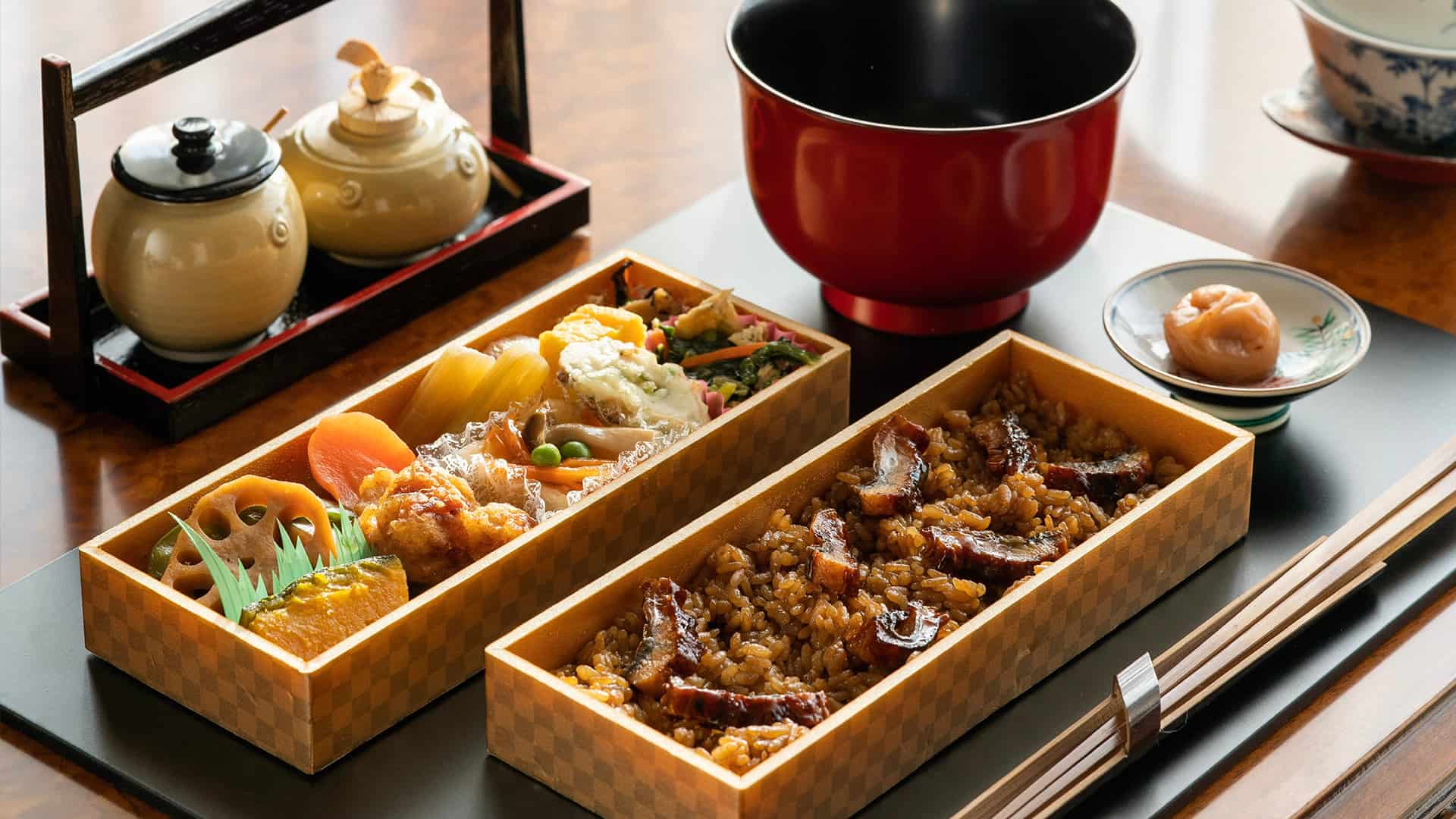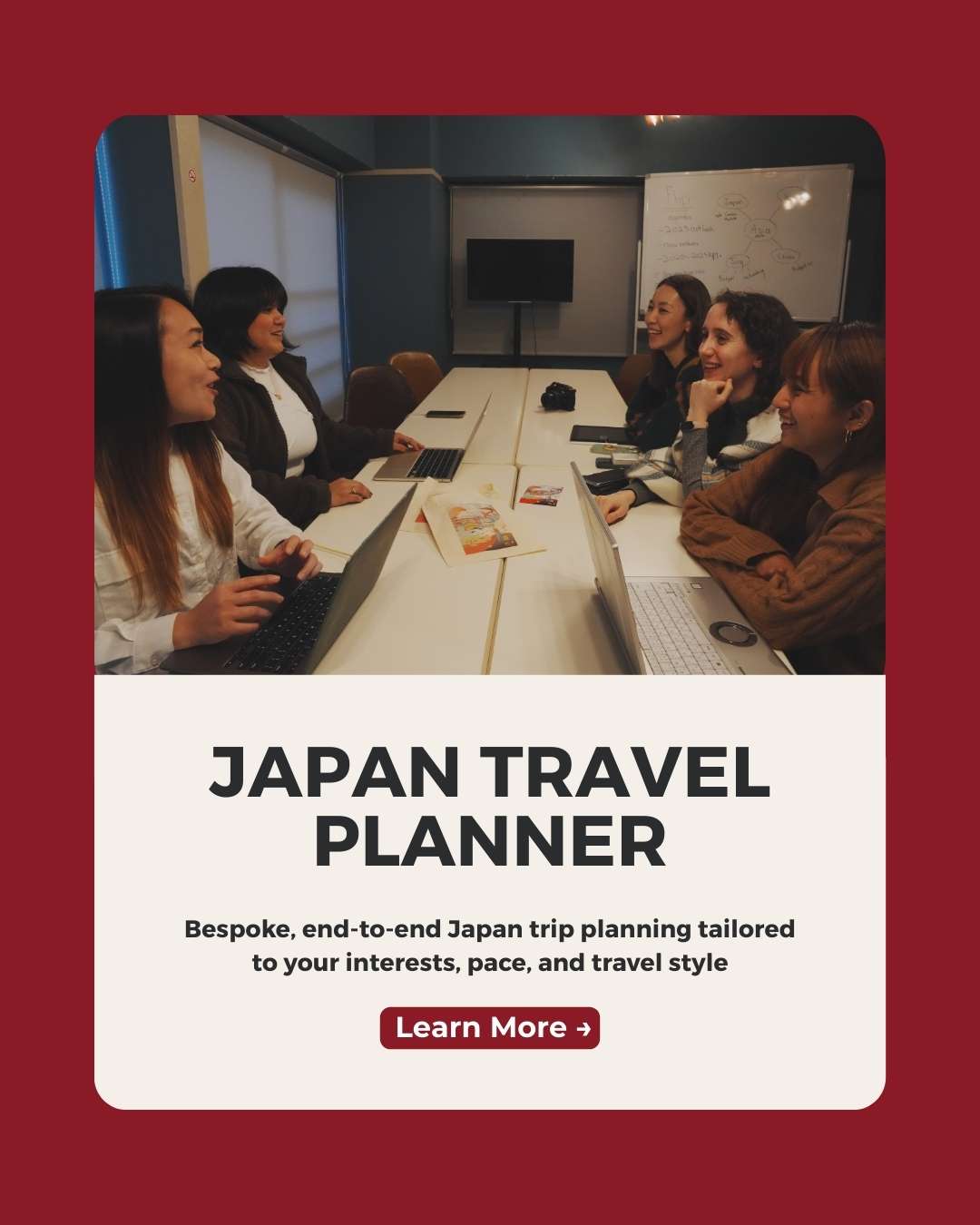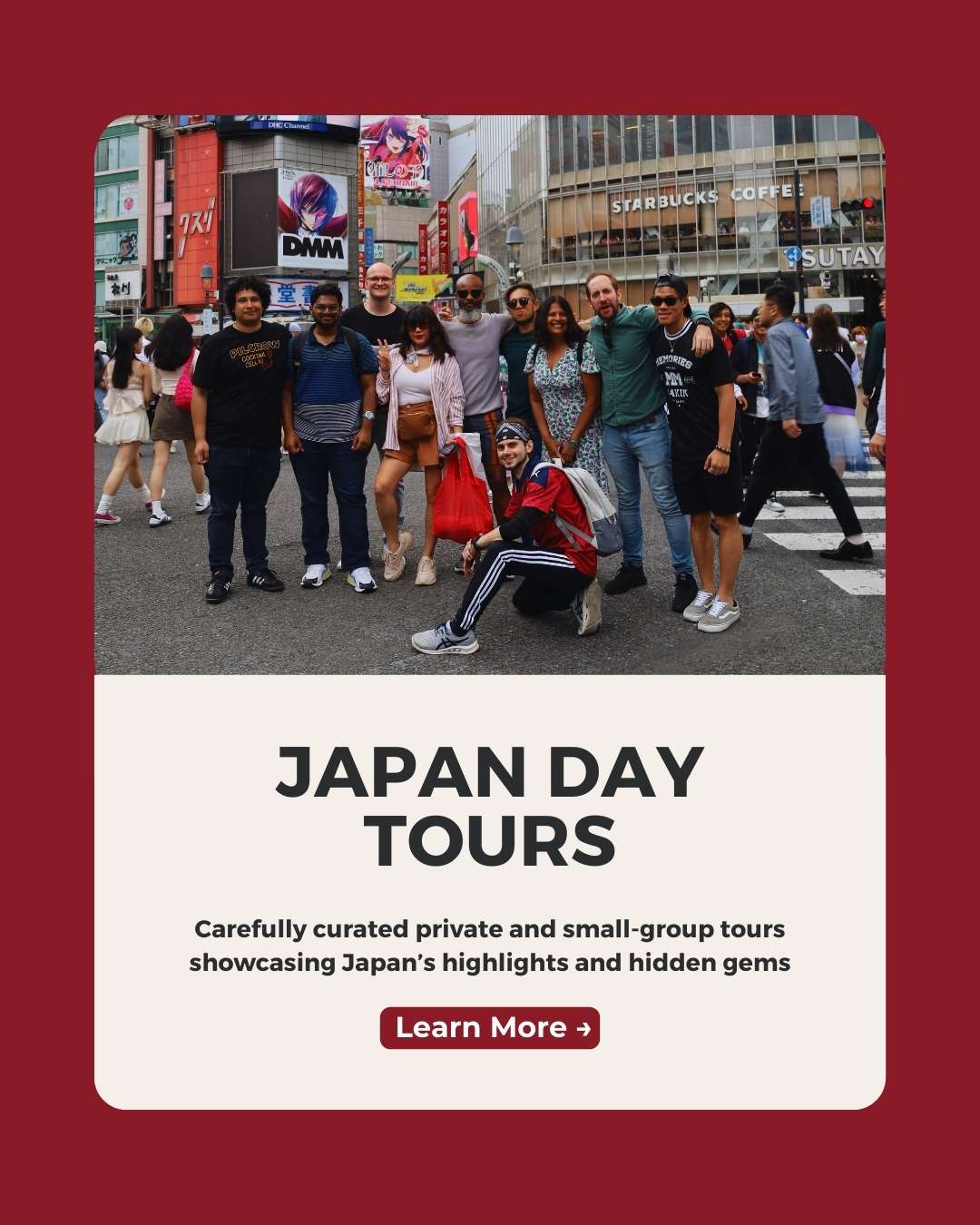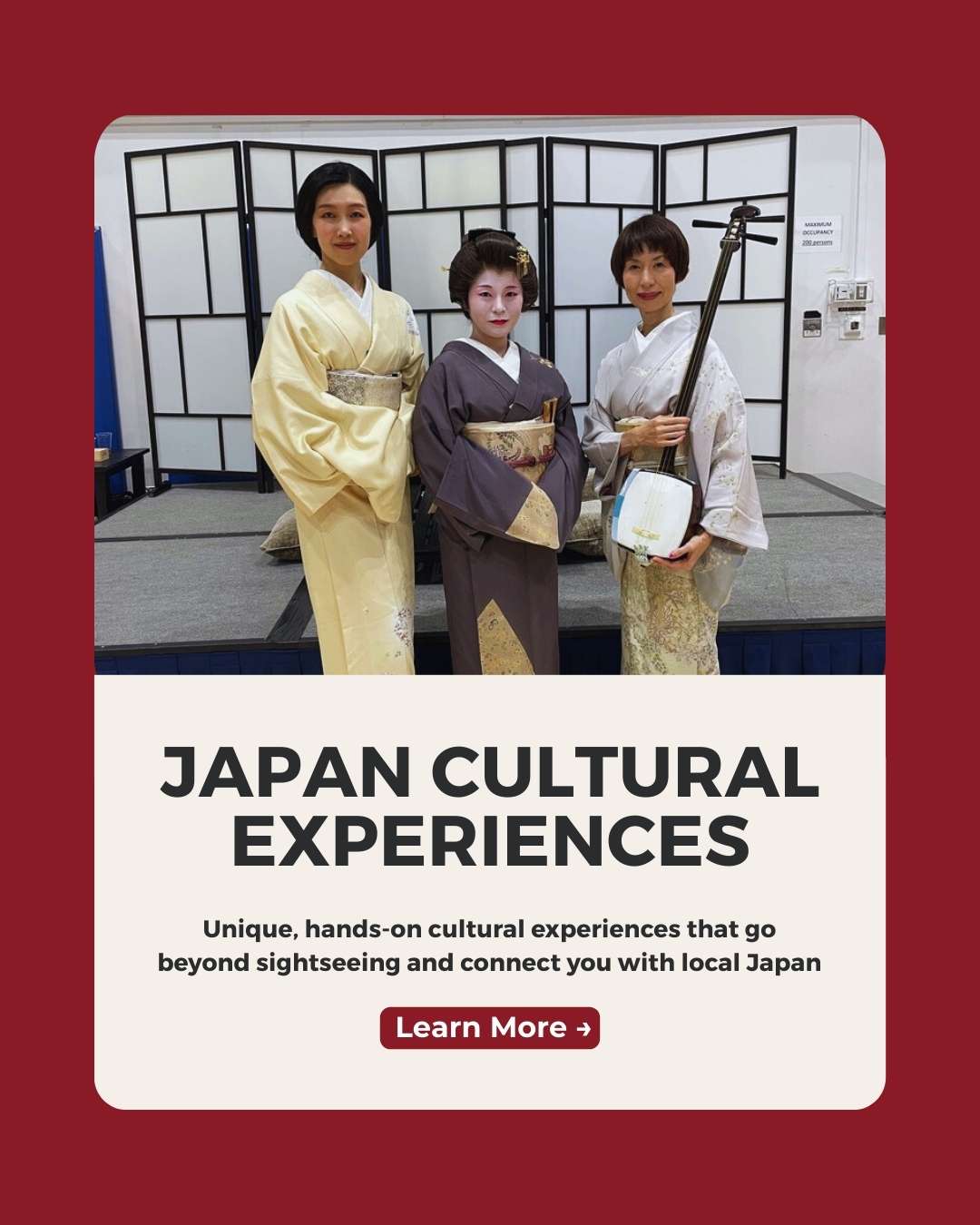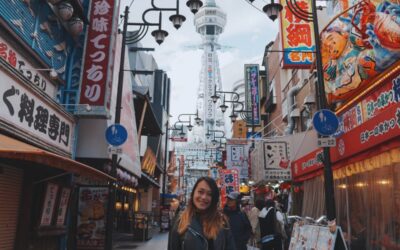Whether it’s your first trip to Japan or you’ve been more times than you can count, the country has a magical way of always feeling fresh and surprising. One minute you’re buying hot coffee in a vending machine, the next you’re bowing to a robot. It’s a place where tradition and tech exist side by side—and where the unspoken rules of day-to-day life can sometimes catch visitors off guard.
To help you avoid confusion (and make the most of every moment), we’ve pulled together some of our go-to travel tips for easy Japan trip planning. These are based on real experiences and little lessons we’ve learned along the way—perfect for anyone who wants to travel a bit more smoothly, respectfully, and confidently across this incredible country.
Tipping is not part of Japanese culture.
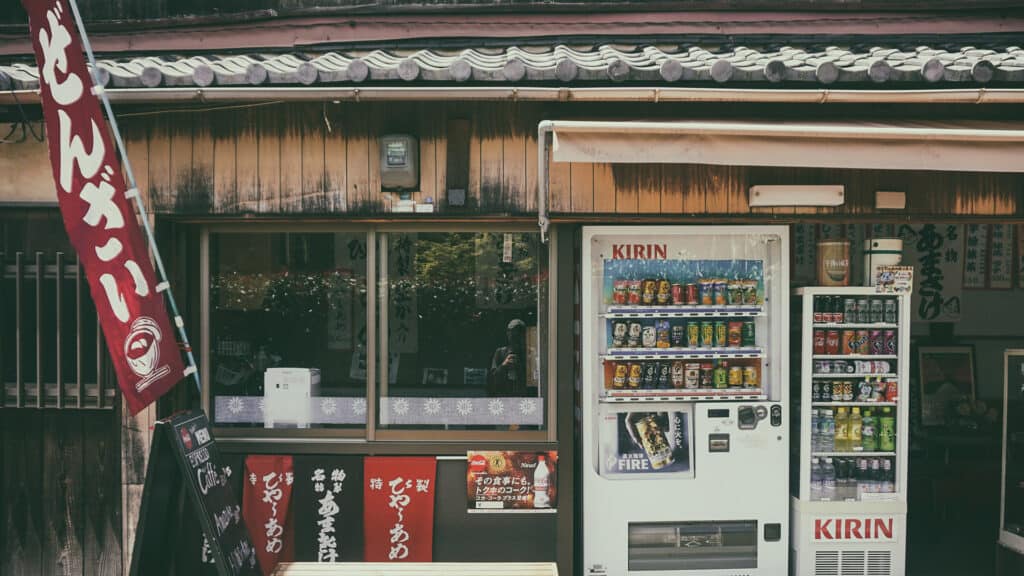
In Japan, tipping isn’t just unnecessary—it can actually feel awkward or confusing to the person receiving it. Whether you’re dining out, staying in a hotel, or catching a taxi, no one will expect a tip, and in most cases, they’ll politely hand it back. It’s all part of Japan’s culture of pride in service, where people are paid a fair wage and don’t rely on tips.
You might notice a tip jar here and there, usually in touristy cafés or casual eateries, but these are the exception, not the rule. If you really want to show appreciation, a sincere “arigatou gozaimasu” and a smile go a long way.
Smoking is only allowed in certain areas in Japan.

While some countries have banned smoking in almost all public spaces, Japan takes a slightly different approach. You can smoke—but only in specific areas. Outdoor smoking zones are clearly marked, especially in city centres, and many buildings have indoor smoking rooms that are fully sealed off.
Some older izakayas (Japanese pubs), local bars, and restaurants still allow indoor smoking, although this is slowly changing thanks to new regulations. It’s a good idea to check before lighting up. Also, smoking on the street outside designated zones isn’t just frowned upon—it can get you fined in some places. So look out for signs and stick to the rules.
Tattoos are taboo in the country.

Japan has a complicated relationship with tattoos. Historically, they were linked with the Yakuza (Japanese organised crime groups), so even today, tattoos can be seen as intimidating or inappropriate in certain settings.
That said, things are slowly changing—especially among younger generations and in big cities. But if you’re heading to a hot spring (onsen), public bath, swimming pool, or even a gym, you might still be refused entry if your tattoos are visible. Some places offer cover-up stickers or private rental options, though, so it’s worth doing a bit of research in advance. If you’re tattooed and planning an onsen visit, definitely check out our blog post that dives deeper into this.
Use coin lockers.

Got a few hours to kill before your hotel check-in? Bought way more stuff than your arms can carry? Japan’s coin lockers are the solution you didn’t know you needed. They’re everywhere—train stations, malls, convenience stores, tourist spots—and come in all sizes.
Most lockers are self-service and super easy to use, with instructions in English and payment options via coins or IC cards like Suica and Pasmo. Just pop your stuff in, go explore hands-free, and come back when you’re ready. You’ll wonder how you ever travelled without them.
Have your luggage delivered.
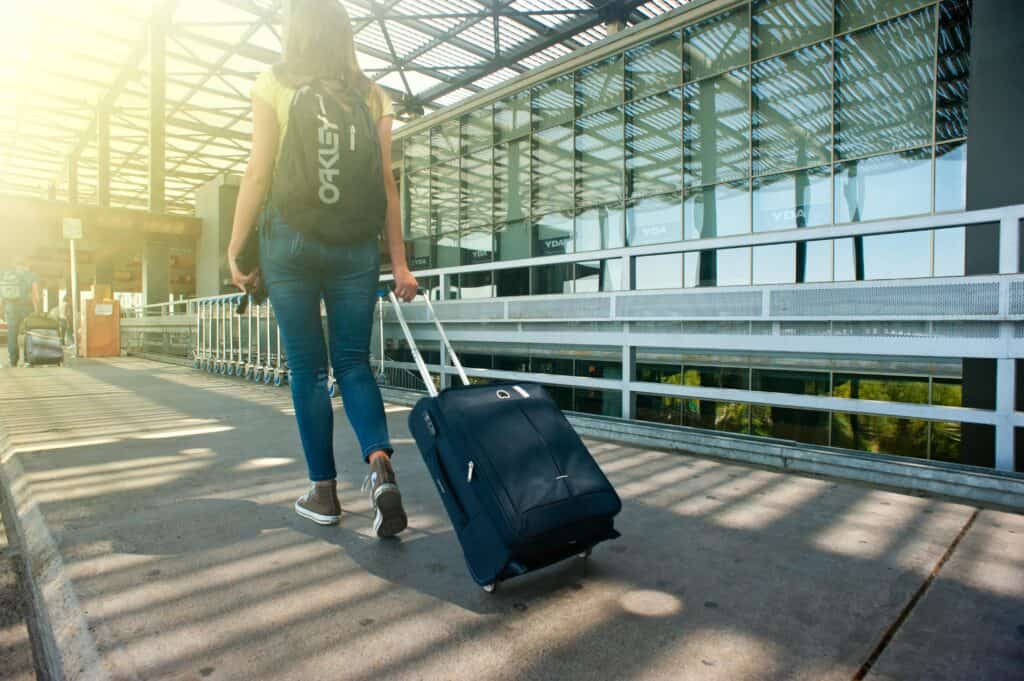
If your shopping haul won’t squeeze into your suitcase—or if your bag’s suddenly tipping the scale into “please pay excess fees” territory—don’t stress. Japan’s got your back with super handy delivery services like Japan Post and Yamato Transport (a.k.a. the ones with the black cat logo). You can easily send your luggage or parcels straight to your next hotel or even all the way home. This means you can roam freely without dragging bulky bags through packed train stations or up shrine staircases (speaking from painful experience!).
Trust us—this little trick can be a total game changer when you’re hopping cities or prepping to fly home with all those amazing finds from your Japan adventure.
For all the deets, including how to use these services step-by-step and tips on when they’re most worth it, check out the full blog post!
If you need help, go to a koban.
Koban are small police boxes you’ll see dotted around neighbourhoods, often near train stations or in busy areas. They might look like tiny little huts, but they’re proper police outposts staffed by friendly officers.
If you get lost, need directions, or something’s gone wrong, don’t be shy about popping in. While English ability varies, officers will usually try their best to help. Japan is super safe overall, but it’s reassuring to know there’s always somewhere to turn if you’re in a bind.
Japanese people are hesitant to say ‘no’.
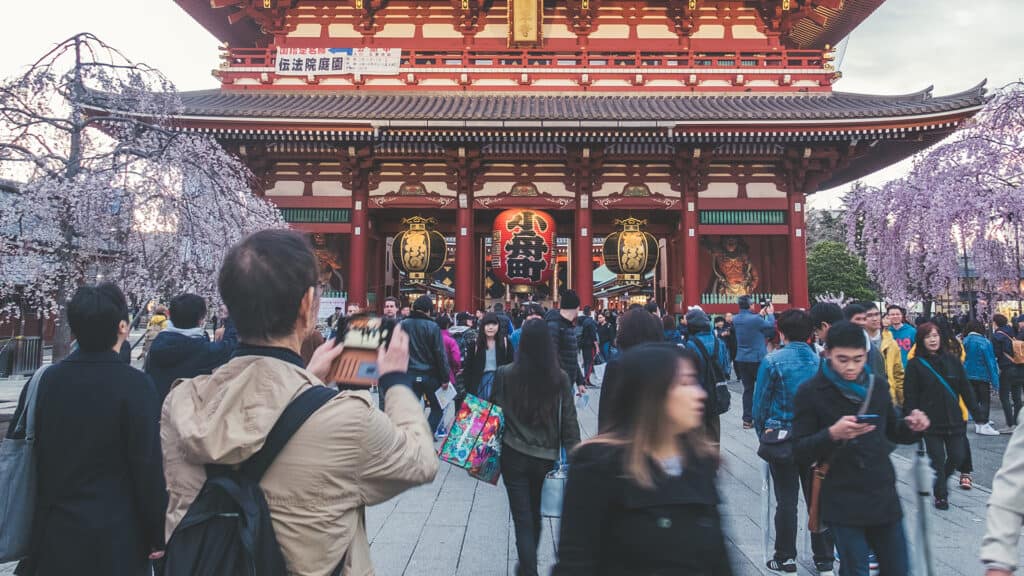
This one’s more of a cultural nuance, but it’s good to be aware of. In Japan, people tend to avoid saying “no” outright—it’s considered a bit too direct and can come off as rude. Instead, you’ll hear phrases like “it might be a little difficult” or “maybe not today,” often said with a thoughtful pause or an apologetic smile.
If you’re asking about something—like whether there’s space in a restaurant or if someone can help with a favour—just keep in mind that a vague or hesitant response usually means “no.” It’s not meant to be misleading; it’s just a gentler way of communicating.
Don’t eat while walking.
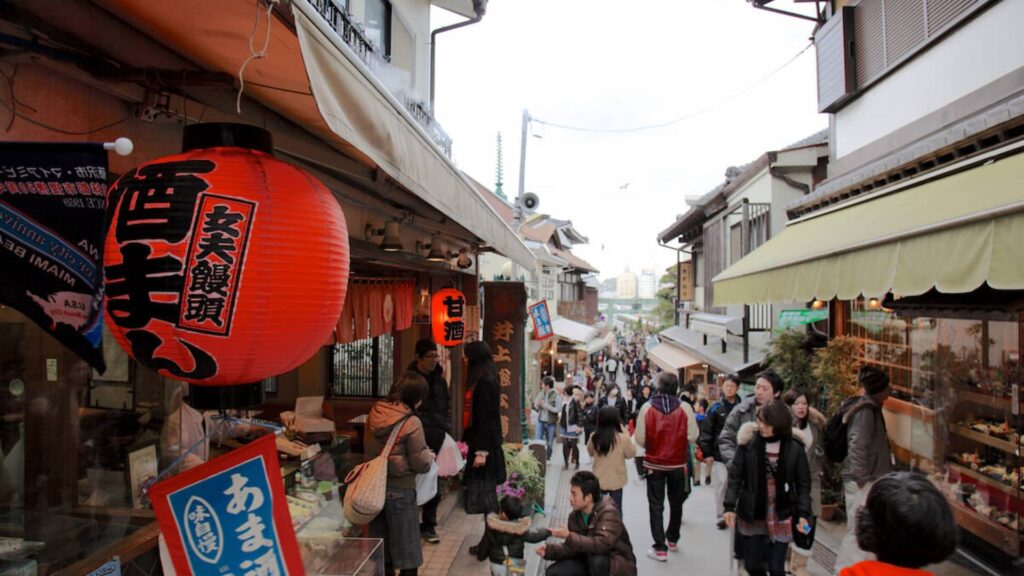
Street food is everywhere in Japan—from fresh takoyaki in Osaka to matcha ice cream in Kyoto—and it’s incredibly tempting to grab and go. But eating while walking is generally considered bad manners, especially in busy public places.
Instead, look for a designated eating area or just stand near the stall until you finish. In many popular food streets (like Nakamise in Asakusa or Takeshita Street in Harajuku), you’ll see signs or small benches encouraging people to pause and enjoy before continuing on. It’s a small thing, but one that’s appreciated culturally.
Observe Japanese greetings.
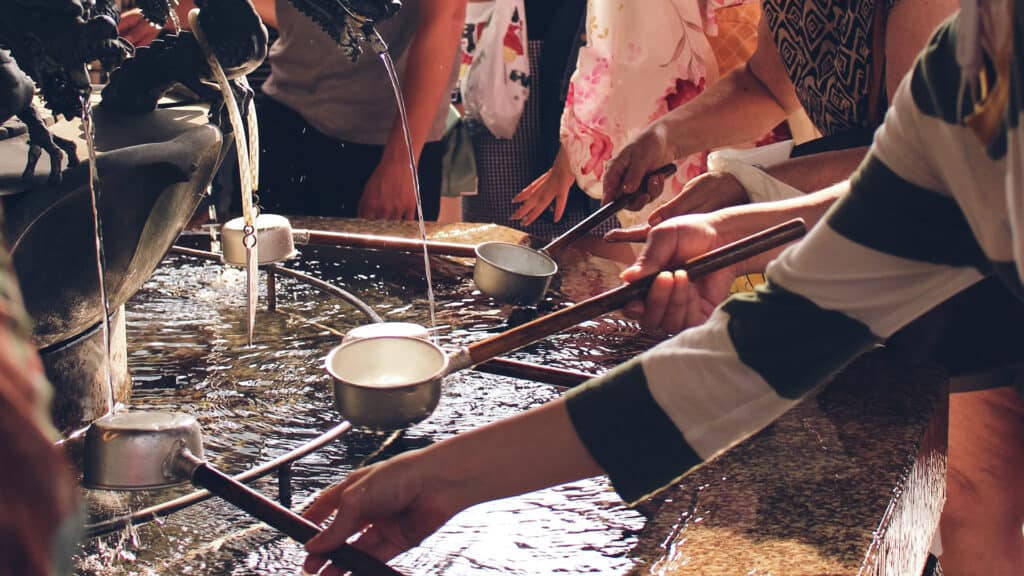
When someone greets you in Japan, they’ll often bow—and as a visitor, you’re not expected to get it perfect. Just returning the gesture with a slight nod or bow of your own shows respect and appreciation for the culture.
In shops, restaurants, and hotels, staff often greet customers with a bow as a sign of politeness. Don’t feel pressured to overdo it; just a quick dip of the head is enough. If someone bows deeply (like at a fancy ryokan), it’s just them going the extra mile—no need to match it unless you want to!
Take off your shoes.
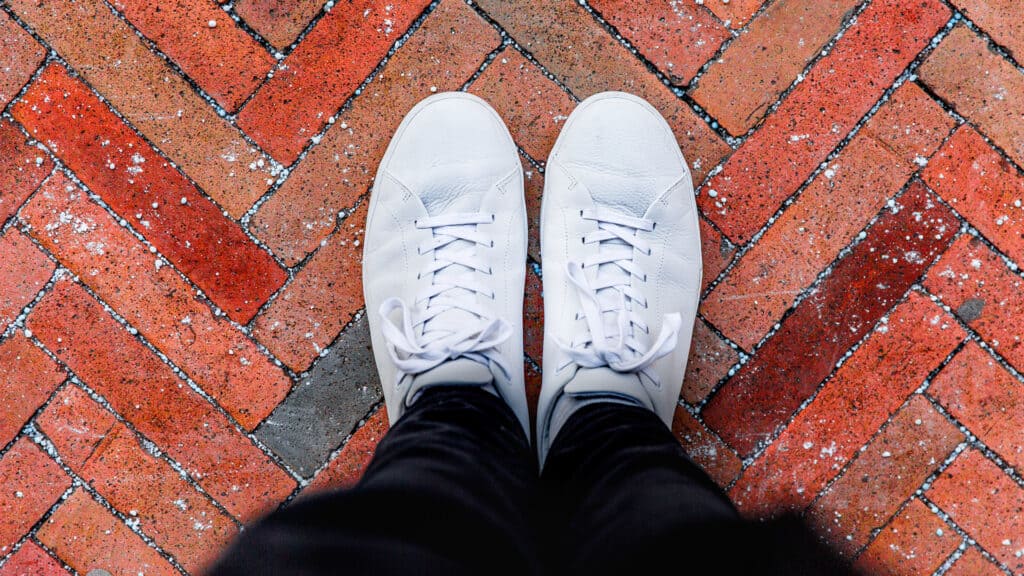
Taking your shoes off isn’t just a tradition—it’s a hard rule in lots of places. If you’re entering someone’s home, you’ll always be expected to remove your shoes at the entrance. But it doesn’t stop there. You’ll also need to do this in some restaurants, traditional inns (ryokan), temples, and even certain clinics or schools.
Look for a step-up or a shelf filled with slippers—that’s your cue. Usually, slippers are provided, but if not, just walk in socks. Pro tip: wear clean, hole-free socks because you will be showing them off. Bonus points for wearing cute ones!
Don’t talk on the phone in public transportation.
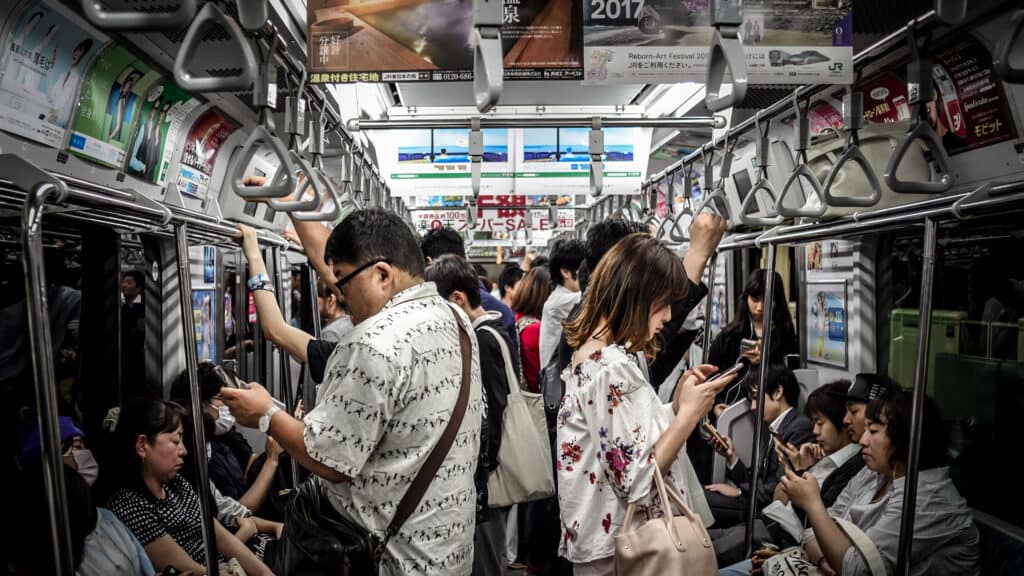
One thing you’ll notice straight away on Japanese trains and buses is how quiet they are. There’s an unspoken rule about keeping noise to a minimum—especially when it comes to phone calls. In fact, talking on the phone is a bit of a no-no on public transport altogether. Most people either text, scroll quietly, or just sit and enjoy the peace.
If you really do need to take a call, it’s best to wait until you’re off the train or move to a designated area if there is one. And if you’re travelling in the designated “quiet cars” on certain trains, it’s extra important to stay silent.
Know which side to walk on.
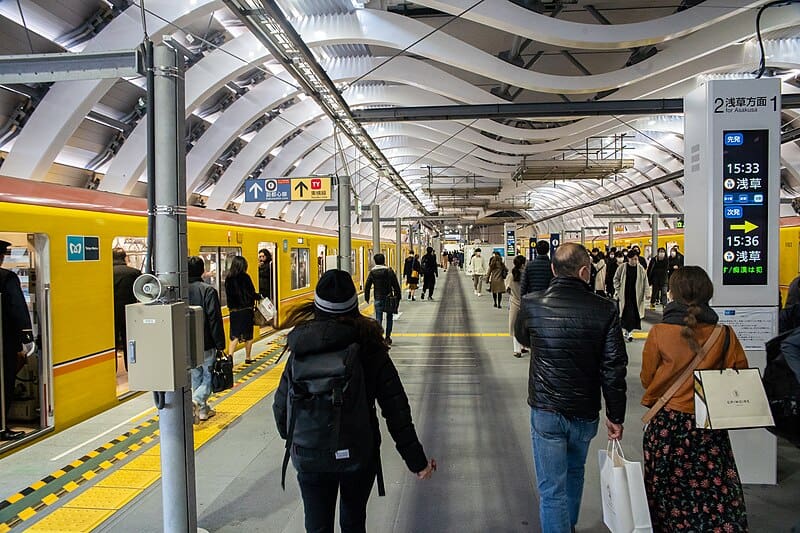
In busy cities like Tokyo, people generally stick to the left side when walking—whether it’s on the pavement or through a station. This helps keep foot traffic flowing smoothly, especially during rush hour. It’s not a hard rule, but following the flow makes you less likely to bump into people.
The same goes for escalators: in most of Japan, you stand on the left and walk on the right. That said, in some regions like Osaka, it’s actually the other way around (stand right, walk left). Confusing? A bit. But just watch what locals are doing and you’ll pick it up fast.
Know where to get Wi-Fi access.
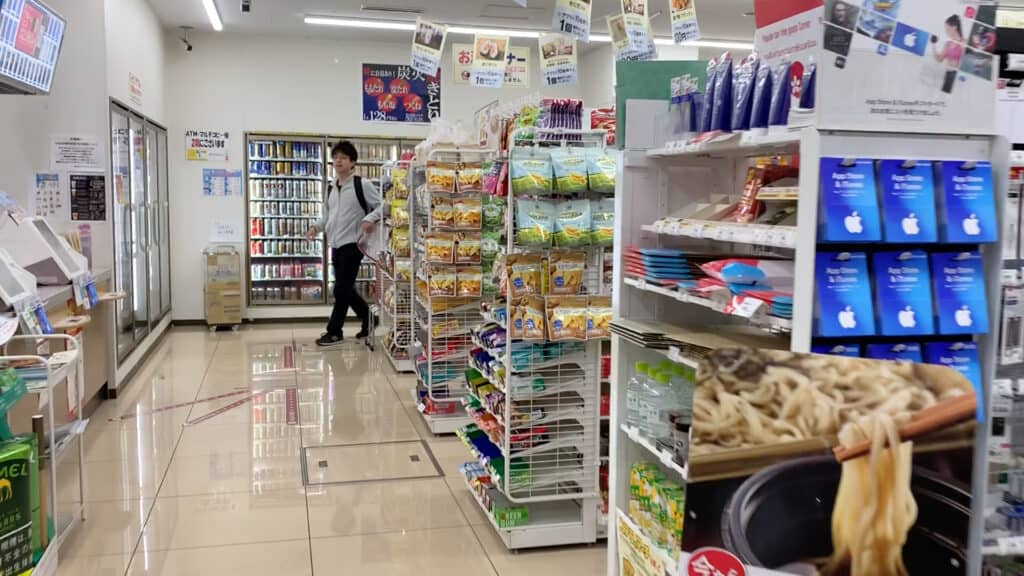
Staying connected in Japan is easier than it used to be, but public Wi-Fi still isn’t quite as widespread as in some countries. The good news? You can find reliable free Wi-Fi at places like 7-Eleven, FamilyMart, Lawson, McDonald’s, and Starbucks. These spots are everywhere, and their networks are surprisingly fast and stable.
Many cities also offer free public Wi-Fi networks in train stations, tourist areas, and department stores. Just be ready to sign in or watch a quick ad—nothing too complicated, though.
Know where to get sim cards and pocket Wi-Fi.
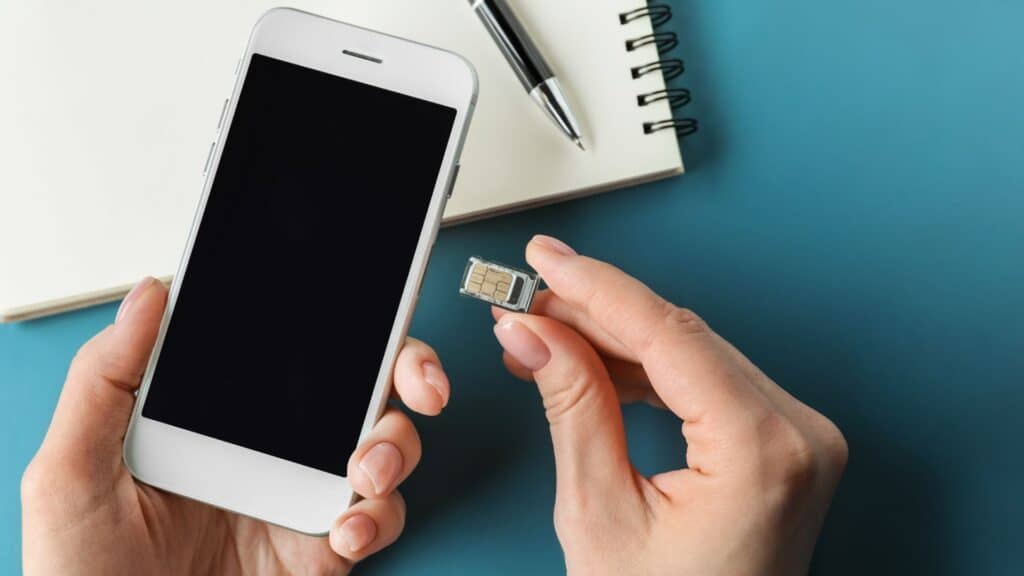
If you need more consistent internet access while you’re out and about, grab a prepaid SIM card or rent a pocket Wi-Fi device. These are widely available at airports, Don Quijote stores, electronics shops like Bic Camera, and even some convenience stores.
Pocket Wi-Fi is great if you’re travelling in a group (you can connect multiple devices), while SIM cards are handy for solo travellers with unlocked phones. Plans vary, but most offer good coverage and solid speeds—so you’re sorted whether you’re navigating trains or TikToking your sushi.
Find the right accommodation.

From luxury hotels to budget hostels, from traditional ryokans to quirky capsule hotels—Japan has so many options when it comes to where to stay. If you’re looking for something a bit different, try a themed hotel or a ryokan with tatami floors and an onsen bath. For the full local experience, Airbnb is also a solid shout, especially in more residential neighbourhoods.
If you’re trying to save money, consider staying a little outside the city centre. Trains are efficient and quick, so being 10–20 minutes out can save you a decent chunk without sacrificing convenience.
Be punctual.

Trains in Japan are famously punctual—down to the minute. If the schedule says the train departs at 10:32, you best believe it’s leaving at 10:32, not a second later. This applies to subways, bullet trains, buses—everything.
Give yourself enough time to get to the platform, especially in big stations where transfers can take longer than expected. Being even a few seconds late might mean waiting for the next train, and during busy hours, that can be a bit of a squeeze.
There are multiple train companies.

Japan’s rail system isn’t run by one single company—there are several, including JR (Japan Rail), Tokyo Metro, Toei, and others. This means a ticket or pass from one operator might not work for another, even if you’re just switching lines.
To make life easier, get yourself a prepaid IC card like Suica or Pasmo. These work across pretty much all train and bus lines and save you from figuring out fares every time you travel. Just tap in and out—easy.
Use Google Maps.

Japan’s public transport system is incredibly efficient, but it can be a bit overwhelming at first, especially in big cities like Tokyo or Osaka where there are dozens of train and subway lines. That’s where Google Maps comes in clutch.
Not only does it show you the best routes, but it also gives platform info, travel time, and fare estimates. Sometimes, a short walk to a nearby station can save time, money, or a complicated transfer. So don’t just follow the nearest train—check your options!
You can find Top Must-Have Japan Travel Apps in 2025 here.
Take advantage of one-day train passes.
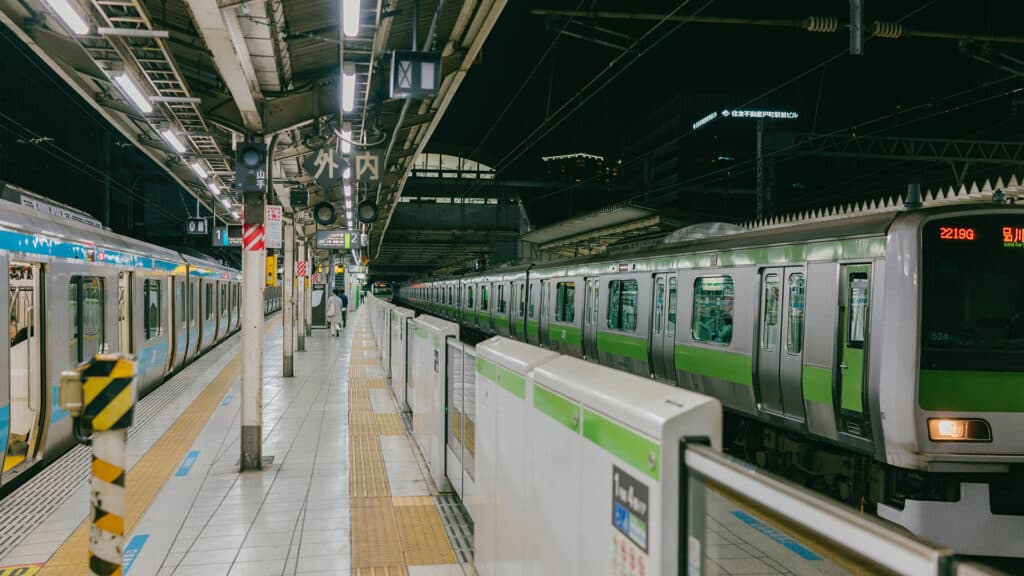
If you’re planning to bounce around the city in a single day—hopping between museums, shrines, food markets, and shops—a one-day pass can be a great value. These are usually offered by individual train or subway companies and give you unlimited rides for the day.
Just a heads-up: the passes only work on that company’s lines, so if you’re switching operators a lot, it might not be worth it. You’ll get the most bang for your buck if you’re taking 3–4 trips with the same network.
Choose the right rail pass for your trip.

With the JR Pass now significantly more expensive, it’s not always the best deal—especially for shorter trips or if you’re sticking to one region. While it still makes sense for longer stays with lots of bullet train travel across the country, regional rail passes are often a smarter (and cheaper) option.
If you’re exploring eastern Japan, the JR East Pass (Tohoku area) is a great pick. For those travelling around Osaka, Kyoto, Hiroshima, and beyond, the JR West All Area Pass is worth checking out. Heading down south? The JR Kyushu Rail Pass covers cities like Fukuoka, Nagasaki, and Kumamoto. These passes give you unlimited travel within their regions for a set number of days—perfect for flexible, stress-free exploring without breaking the bank.
Take the bus.
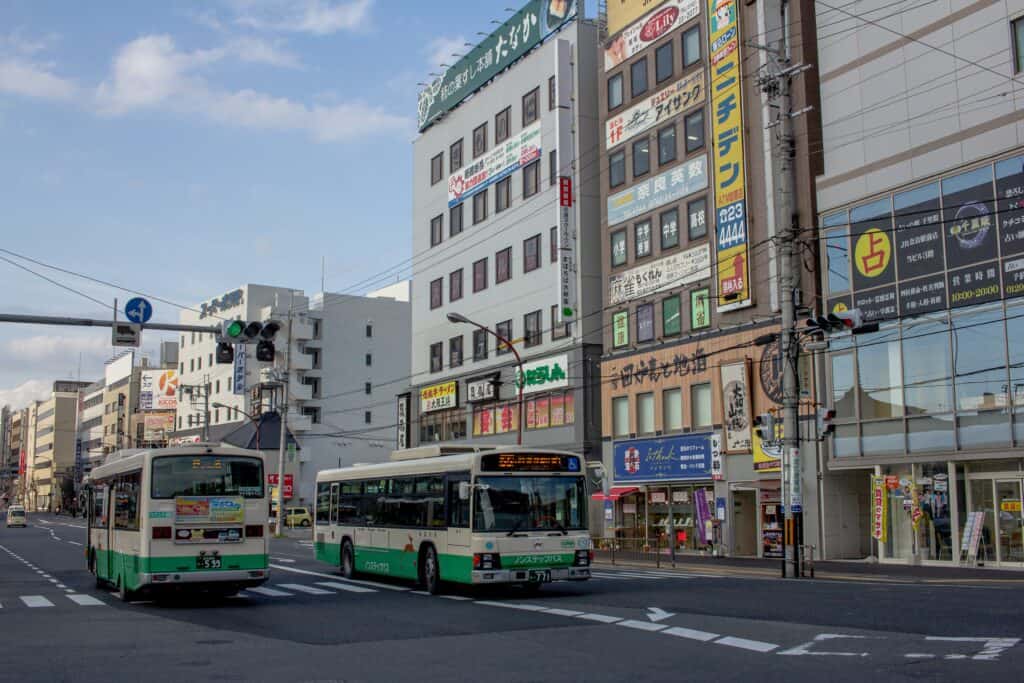
Trains might get all the attention, but buses are seriously underrated in Japan. In some areas—especially smaller towns or more rural spots—buses are actually more convenient and accessible than trains.
In cities, you usually pay when you board (IC cards make this easier), but in other areas you might grab a little ticket when you get on and pay when you hop off. Either way, there’s usually an electronic sign showing your fare based on the number on your ticket.
Explore the city on a bicycle.

Japan is super bike-friendly, and cycling is a fantastic way to explore neighbourhoods at your own pace. Lots of cities offer bike rentals (some through apps, others at hotels or local shops), and you’ll often find designated cycle lanes or quiet backstreets perfect for cruising around.
It’s a great way to see the hidden side of a city—small temples, riverside paths, and local coffee shops you might miss on the train. Just remember to park your bike in a designated spot (illegal parking can get you fined or towed).
Make use of lunch deals.
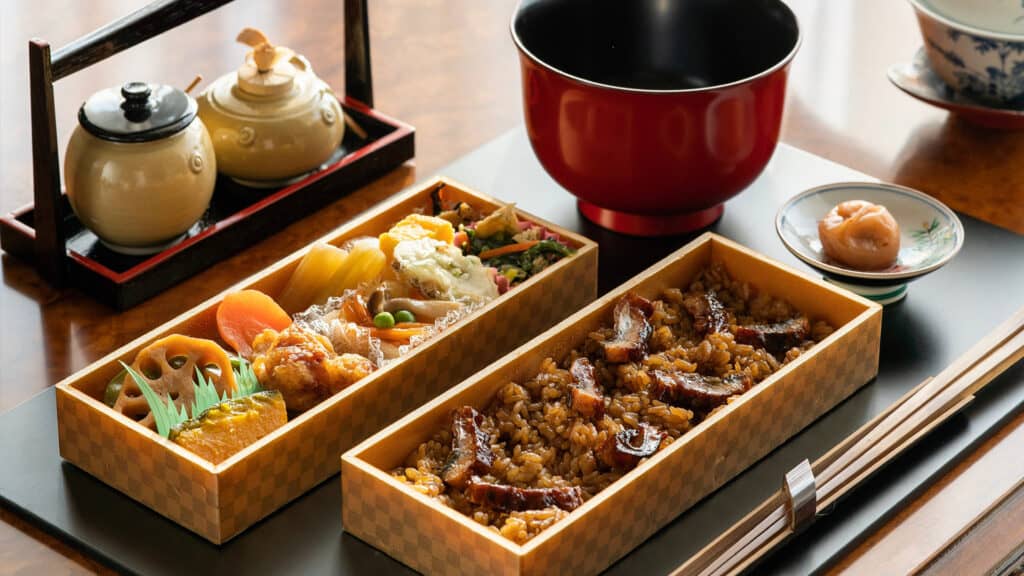
Want to eat well and stick to a budget? Japan’s lunch deals are where it’s at. Even high-end restaurants often offer super affordable set meals during lunchtime—think multi-course sushi, wagyu beef, or teishoku (set meals) for a fraction of the dinner price.
Look out for signs or menus that say “ランチセット” (ranchi setto) or “lunch set” outside restaurants. You’ll usually get a main dish, rice, miso soup, and sides—all freshly made and seriously delicious. Pro tip: get there early, because lunch spots can fill up fast.
Go wild at all-you-can-eat (and drink!) spots.
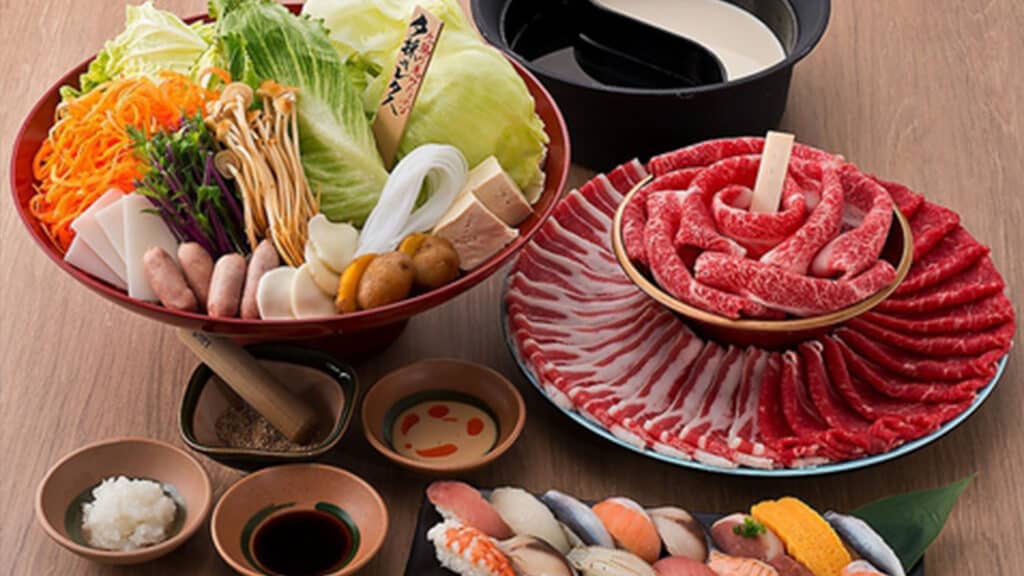
If you’ve got a big appetite—or just want to try everything—you’re going to love Japan’s all-you-can-eat (食べ放題, tabehoudai) and all-you-can-drink (nomihoudai) restaurants. These places are a dream come true, especially if you’re into variety and value. You’ll find everything from yakiniku (Japanese BBQ) to sushi, hotpot, fried chicken, dessert buffets and more.
Prices are usually pretty reasonable, and you’ll often get a time limit (like 90 or 120 minutes), so come hungry. Pair it with nomihoudai and you can enjoy unlimited drinks—alcoholic and non-alcoholic—for a fixed price. Perfect for a night out with friends or one of those “treat yourself” meals after a long day of sightseeing.
Hit up 100 yen shops.
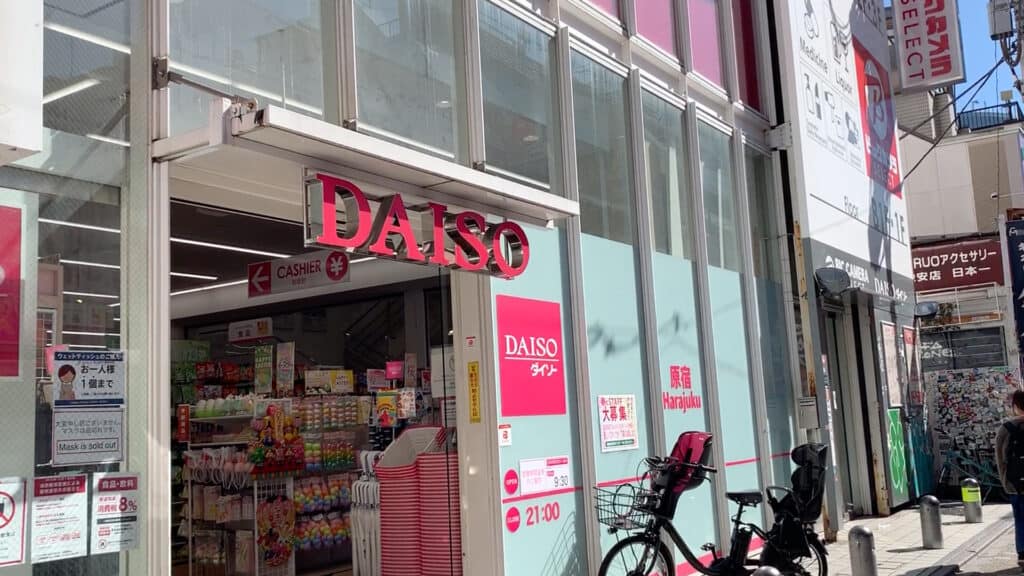
For affordable souvenirs, household goods, snacks, stationery, or even travel essentials, 100 yen shops are absolute gold. Think of them like Japan’s version of a dollar store—but with way better quality. You’ll find everything neatly organised and surprisingly well-made, from cute chopsticks to skincare products.
Daiso, Seria, and Can Do are the main chains to look out for, and there’s usually at least one near major train stations or shopping areas. Bonus: everything’s 110 yen (with tax), so it’s easy on the wallet too.
Shop at Don Quijote.
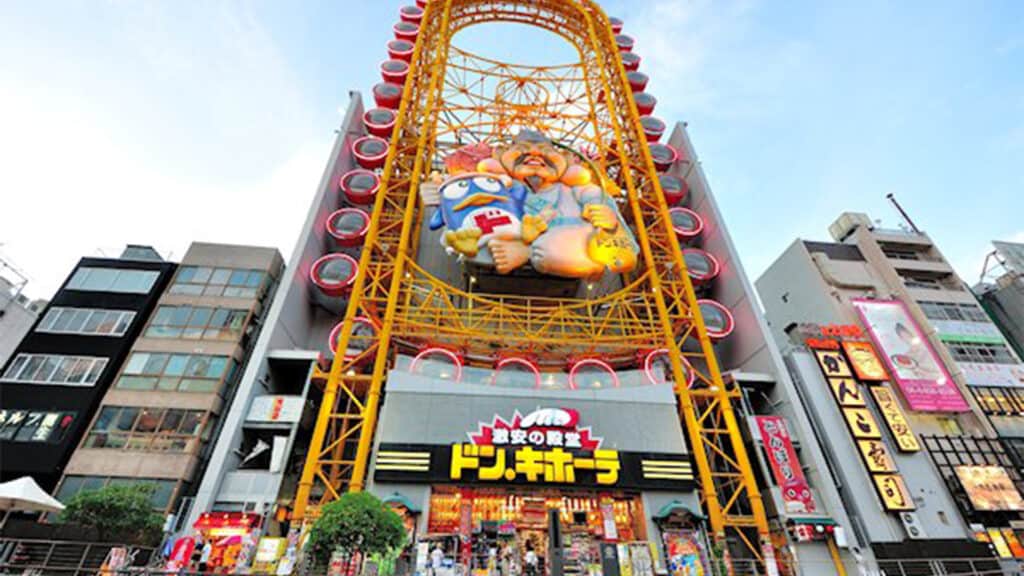
Don Quijote (aka Donki) is a chaotic, colourful wonderland of bargains. If you’ve never been, imagine a multi-floor discount store filled to the brim with everything from beauty products and quirky souvenirs to electronics, snacks, and luxury brand items. It’s part shop, part sensory overload—and 100% fun.
Donki is open late (some are 24/7), which makes it the perfect spot for a post-dinner browse or a last-minute shopping spree. You can even find suitcases here to carry all the stuff you didn’t mean to buy but somehow did.
Convenience stores are lifesavers.
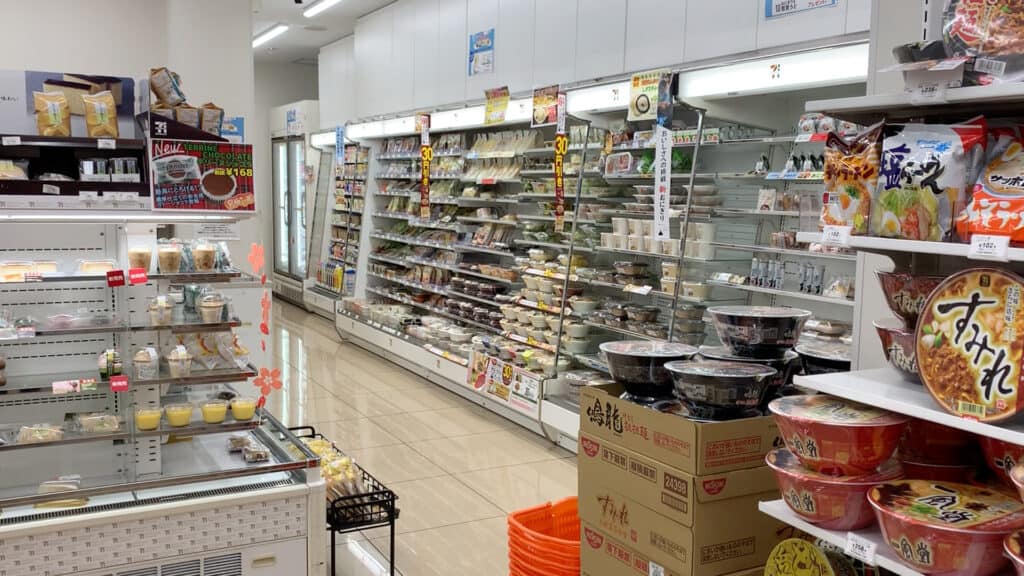
Japanese convenience stores—or konbini—are on another level. These places aren’t just for snacks; they’ve got legit meals (bentos, onigiri, hot food), drinks, toiletries, chargers, umbrellas, and even concert tickets or ATM services.
You’ll find them literally everywhere, and they’re open 24/7. Lawson, FamilyMart, and 7-Eleven are the big three, and all have their own special goodies. If you’re travelling on a budget or just want something quick and tasty, konbini food will seriously impress you.
Grab a transport card ASAP.
Get yourself a Suica, Pasmo, or ICOCA card—these IC cards make travelling around cities so much easier. You just tap in and out on trains, buses, and even some vending machines or shops. No more fiddling with coins or trying to work out exact fares.
You can buy and top up these cards at most train stations or even in airports when you arrive. Bonus: some transport companies offer mobile versions you can add to your phone (especially useful if you’ve got an iPhone or Apple Watch).
There aren’t many public bins—carry your rubbish.
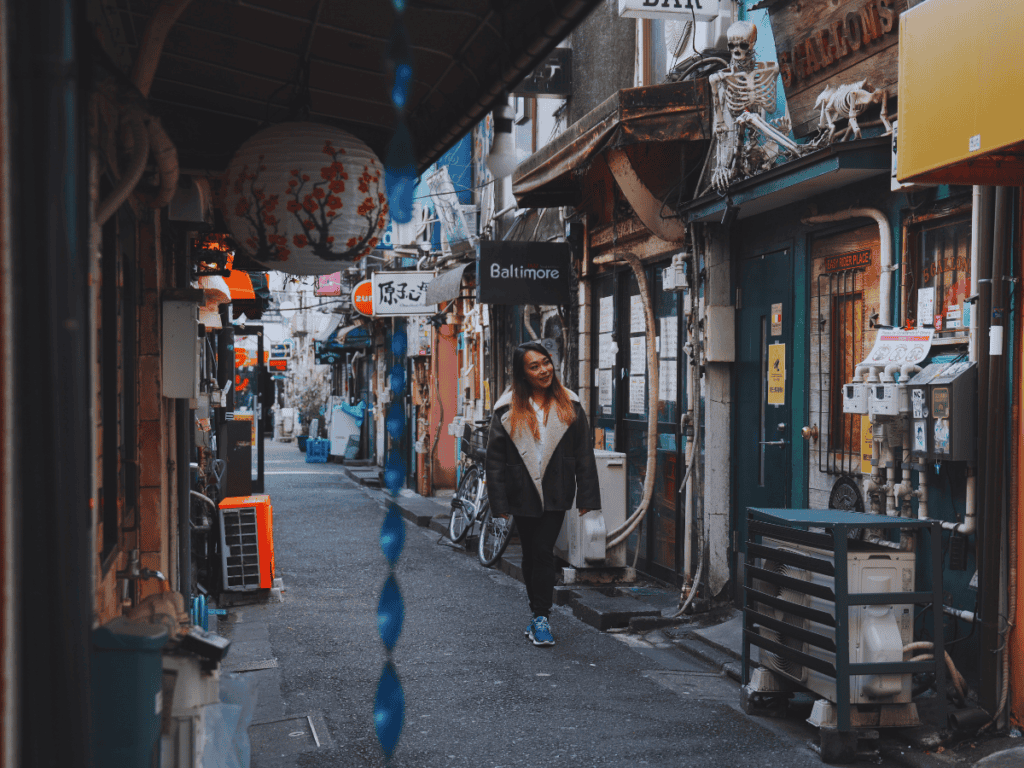
One of the first things you might notice in Japan: it’s incredibly clean… but you’ll barely see any rubbish bins. That’s because there’s a strong culture of taking your rubbish home with you. It’s not weird at all to carry an empty coffee cup or snack wrapper around for a bit before you find a bin—everyone does it.
You will find bins near convenience stores and inside stations, but it’s smart to bring a little plastic bag or ziplock pouch to keep your waste until you can chuck it properly. It’s all part of the respect-for-public-space vibe Japan’s known for.
Students, bring your ID!
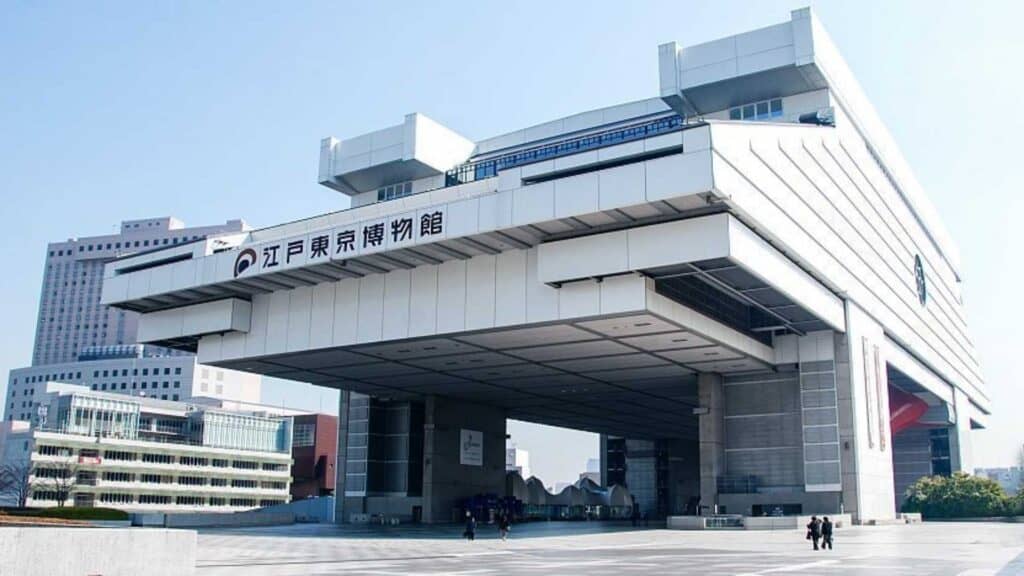
If you’re a student, don’t forget to pack your uni or college ID. Loads of places offer discounts for students—including museums, galleries, cinemas, attractions, and even some restaurants. The savings might seem small at first, but they really add up, especially if you’re sightseeing on a budget.
Even if there’s no sign advertising a student discount, it never hurts to ask. Just show your ID (ideally one with your photo and an expiry date), and you might be pleasantly surprised.
Families, take note: many of the same spots also offer discounted entry for children, often based on age or school level. Be sure to check ticket categories or ask at the counter—it’s an easy way to save a bit while exploring as a family.
Japan is a cash society.

Despite its futuristic vibes, Japan still leans heavily on cash. While bigger stores and hotels usually take credit cards, plenty of smaller shops, cafés, markets, and restaurants are still cash-only—or might charge extra for using a card.
Make sure you carry enough yen, especially when you’re travelling outside big cities. ATMs at 7-Eleven, FamilyMart, and Japan Post Bank are foreign-card friendly and open 24/7. If you need to exchange currency, the airport is usually your best bet, as money changers aren’t as common on the street.
Bring a coin purse.

With all that cash use, you’re going to end up with a lot of coins—¥1, ¥5, ¥10, ¥50, ¥100, and ¥500 are all pretty common. And trust us, they add up fast. Rather than letting them rattle around in your pocket or bag, get yourself a little coin purse or pouch.
They’re sold everywhere (including 100 yen shops!), and they’re super handy when you’re paying for small items or using vending machines. Plus, there’s something kinda satisfying about finally using up that pile of change for a bowl of ramen.
Keep your passport handy.
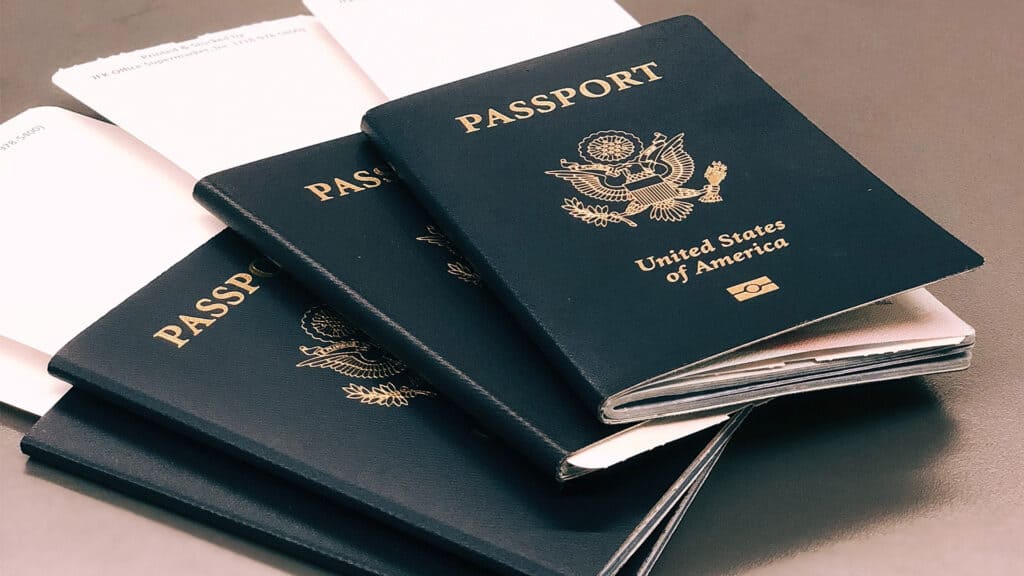
If you’re shopping in Japan as a tourist, you can get tax-free discounts at loads of stores—especially in shopping malls, electronics stores, and tourist areas. Just show your passport at checkout and you can often get the 10% consumption tax removed on the spot.
Some stores do this at the register, others have a separate tax-free counter. Your passport will need to be stamped on arrival (so don’t lose that little slip of paper), and purchases are usually sealed in special bags you’re not supposed to open until you leave the country.
But heads up: this current system will only last until October 2026. From November 2026, Japan’s moving to a refund-based system where you’ll pay tax at the time of purchase, then claim it back at the airport when you leave—so be sure to keep your receipts.
Also, starting April 2025, you won’t be able to get tax-free status on items you’re shipping overseas—it’ll only apply to stuff you physically take with you when you leave Japan. So plan your shopping (and packing) accordingly.
Get Set for Your Trip with These Japan Travel Tips

Going to Japan for the first time is an exciting adventure. From the busy streets of Tokyo to the peaceful temples of Kyoto, Japan has many wonderful things to see and do.
To get the most out of your trip, join one of our guided tours. Try the Tokyo Food & Drinks Bar Tour to explore the city’s nightlife and enjoy local drinks. Or, join the Kyoto Must-Sees and Local Gems Tour to learn about traditional Japanese culture. These tours offer unique and memorable experiences.
Planning your trip might seem hard at first, but with some research and preparation, you can make an itinerary that fits your interests. Be adventurous, keep an open mind, and enjoy the kindness and traditions of Japan.
With your bags packed and excitement high, get ready for an amazing journey through Japan. Your first trip to Japan will be unforgettable, full of wonderful memories and experiences. And remember, our Flip Japan Guide tours are here to make your trip even more special. Enjoy your adventure!
You can also Check out Travel Mistakes blog here!

